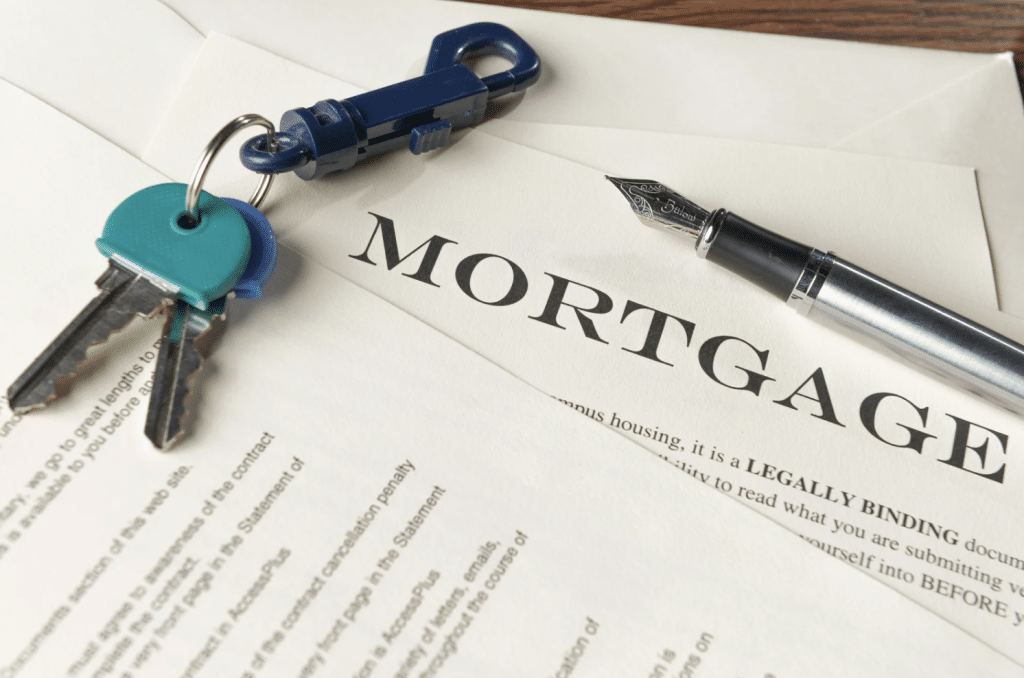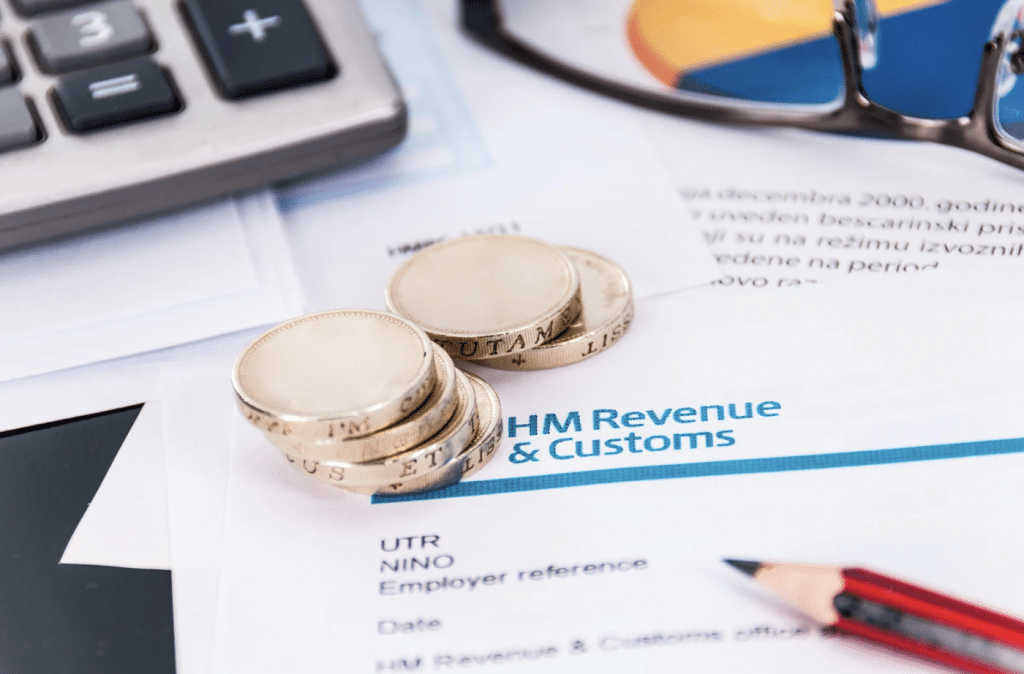Introduction: Why Expats Need an NI Number in the UK
If you are a UK expat buying property in Britain, relocating for work, or returning after time overseas, one of the first administrative steps you will face is applying for a UK NI number.
Without a valid NI number, you may find it difficult to:
- Apply for an expat mortgage in the UK
- Register for self-assessment tax returns with HMRC
- Open a UK bank account
- Stay compliant with your UK expat tax obligations
For many expats, this single piece of identification is the gateway to accessing financial services in the UK. The good news is that the process is straightforward once you know the steps!
This guide provides a clear, step-by-step explanation of how expats can apply for an NI number, what documents are required, and why the process matters for your mortgage application, tax compliance, and broader financial profile.
Table of Contents
- What is a National Insurance Number – And Why Does It Matter for Expats?
- Step 1: Check If You Already Have an NI Number
- Step 2: Eligibility Rules for Applying for a UK NI Number as an Expat
- Step 3: Securing a UK Address Before Applying for a UK NI Number
- Step 4: How to Apply for a UK NI Number Online via GOV.UK
- Step 5: Attend an Interview (If Requested)
- Step 6: Tracking Your NI Application
- Step 7: Store and Use Your NI Number Safely
- Step 8: Build Your UK Financial Profile
- FAQs
- Final Checklist for Expats Applying for an NI Number
- Conclusion
What is a UK NI Number – And Why Does It Matter for Expats?
A National Insurance number is a personal tax identifier issued by HMRC. It links your financial and employment activity to the UK tax system.
For expats, an NI number plays a particularly important role:
- Mortgage lenders require it to verify identity and conduct affordability checks
- HMRC uses it to register you for self-assessment and track rental or investment income
- It allows you to begin building a UK financial profile, which is essential for credit history and future refinancing
In short, your NI number is more than just a work-related ID. It is the foundation of your financial credibility in the UK. For expats, applying for a UK NI number is often the gateway to accessing mortgages, tax registration, and building a UK financial profile.
Step 1: Check If You Already Have an NI Number
Before beginning a new application, first confirm whether you have already been issued an NI number. Once assigned, the number is valid for life and never changes. If you have lived, worked, or studied in the UK before, you may not need to begin the process of applying for a UK NI number again, as your old number remains valid.
You may already have one if you:
- Previously worked in the UK
- Studied in the UK and took up part-time employment
- Held a visa that permitted you to work
- Registered for UK tax or benefits
How to check:
- Look for the number on payslips, P60s or P45s, or HMRC correspondence
- Access your personal tax account at GOV.UK
If you already have a number, you must use the same one. HMRC will not issue duplicates. If you cannot locate your NI number, download and complete the CA5403 form from the GOV.UK website and send it to HMRC.
Step 2: Eligibility Rules for Applying for a UK NI Number as an Expat
Before applying for a UK NI number, make sure you meet the eligibility requirements:
- Be physically present in the UK
- Hold valid immigration status that allows you to work or conduct taxable activities (such as earning rental income)
This means you cannot complete the application entirely from abroad. However, you can prepare all the required documents before travelling.
Common eligible applicants include:
- Skilled Worker visa holders
- Spouses or dependants of UK residents
- Returning British expats
- EU/EEA nationals with pre-settled or settled status
Step 3: Securing a UK Address Before Applying for a UK NI Number
A UK address is required when applying for a UK NI number, as HMRC and the Department for Work and Pensions will use it to send:
- Confirmation letters
- Interview invitations, if applicable
- Your official NI number notification
If you do not yet have a permanent address, temporary solutions are acceptable, such as:
- Short-term accommodation (hotel, serviced apartment, Airbnb)
- The address of a friend or family member, with permission
- An employer’s or solicitor’s care-of address
Step 4: Applying for a UK NI Number Online via GOV.UK
The official process for applying for a UK NI number begins on the GOV.UK website.
You will be asked to provide details including:
- Full name and date of birth
- Nationality and immigration status
- Passport or BRP details
- Current UK address
- Reason for applying (for example, employment, mortgage process, or tax registration)
The form generally takes 10–15 minutes to complete.
Documents you may need to provide include:
- A valid passport
- Biometric Residence Permit (if applicable)
- Visa documentation
- Proof of UK address (such as a tenancy agreement or utility bill)
These documents are essential when applying for a UK NI number online, as HMRC uses them to confirm your identity.

Step 5: Attend an Interview (If Requested)
Not all expats will be asked to attend an interview when applying for a UK NI number, but many are if their documents require additional checks.
The interview, usually conducted at a Jobcentre Plus office, is designed to confirm your identity and immigration status.
You may be asked to bring:
- Passport and visa or BRP
- Proof of UK address
- Evidence of why you need the NI number (such as a job offer, mortgage application, or self-employment documents)
Being well-prepared helps prevent unnecessary delays.
Step 6: Track Your Application
Once you have finished applying for a UK NI number, you will need to wait for processing. Timelines usually range from two to six weeks, but may be longer during busy periods or if additional checks are required.
If you have not received your NI number within six weeks, contact the National Insurance helpline with your application reference details.
For expats applying for mortgages, it is advisable to begin the process as early as possible to avoid delays in property transactions.
Step 7: Store and Use Your NI Number Safely
When your NI number arrives, it will usually be sent by letter to the UK address provided in your application. Since 2011, HMRC no longer issues physical cards.
You should:
- Make secure digital and paper copies
- Share the number with your mortgage broker, solicitor, and tax adviser
- Use it when registering for self-assessment with HMRC
Treat your NI number as you would a financial ID: keep it safe and share it only with authorised professionals.
Step 8: Build Your UK Financial Profile
Your NI number is not only essential for your current mortgage or tax registration but also for your long-term financial credibility in the UK. Once you have completed the process of applying for a UK NI number, you can use it to open bank accounts, register for tax, and establish a credit history.
You can use it to:
- Register with HMRC for self-assessment, particularly if you will earn rental income
- Open UK bank accounts
- Establish utility accounts in your name
- Strengthen your credit history over time
This financial profile will improve your options if you plan to refinance, expand your UK property portfolio, or access other forms of lending.

Applying for a UK NI number can feel overwhelming, especially when it affects time-sensitive matters like mortgage approval.
Expat Taxes specialises in supporting expats through this process. Our advisers ensure that your NI application, mortgage requirements, and cross-border tax obligations are managed smoothly and correctly from the start.
Book a consultation with Expat Taxes to discuss your situation and take the stress out of the process.
Frequently Asked Questions
Can I apply for a UK NI number from abroad?
No. You must be in the UK and have the right to work or earn taxable income before applying for a UK NI number.
Do I need an NI number if I already own UK property?
Yes. Mortgage lenders and HMRC usually require it for identity checks and tax registration.
What if I do not have a permanent UK address?
Temporary or care-of addresses are acceptable as long as you can receive post reliably.
How long does it take to receive an NI number?
Processing usually takes between two and six weeks, though it can take longer during peak periods.
What should I do if I lose my NI number?
You can retrieve it through HMRC by completing the form on GOV.UK.
Final Checklist for Expats Applying for an NI Number
- Confirm whether you already have an NI number
- Check your eligibility under UK immigration rules
- Secure a UK address for correspondence
- Apply online via GOV.UK with the correct documents
- Prepare for a potential interview and bring originals
- Track your application and follow up if delayed
- Store the number securely and provide it to advisers
- Use it to build your UK financial profile
Take Control of Your UK Expat Finances
For UK expats and non-UK nationals, applying for a UK NI number is more than just an administrative requirement. It is the cornerstone of accessing mortgages, staying compliant with tax rules, and building financial credibility in the UK.
At Expat Taxes, we work with expats across the globe to simplify complex cross-border matters. From NI number applications to UK expat tax obligations and international planning, our tailored consultations give you clarity, confidence, and peace of mind.
Download our free guide: “Essential Steps to Getting a UK NI Number for Expat Mortgages” or book a consultation today to receive personalised advice with an expert UK expat tax advisor..





